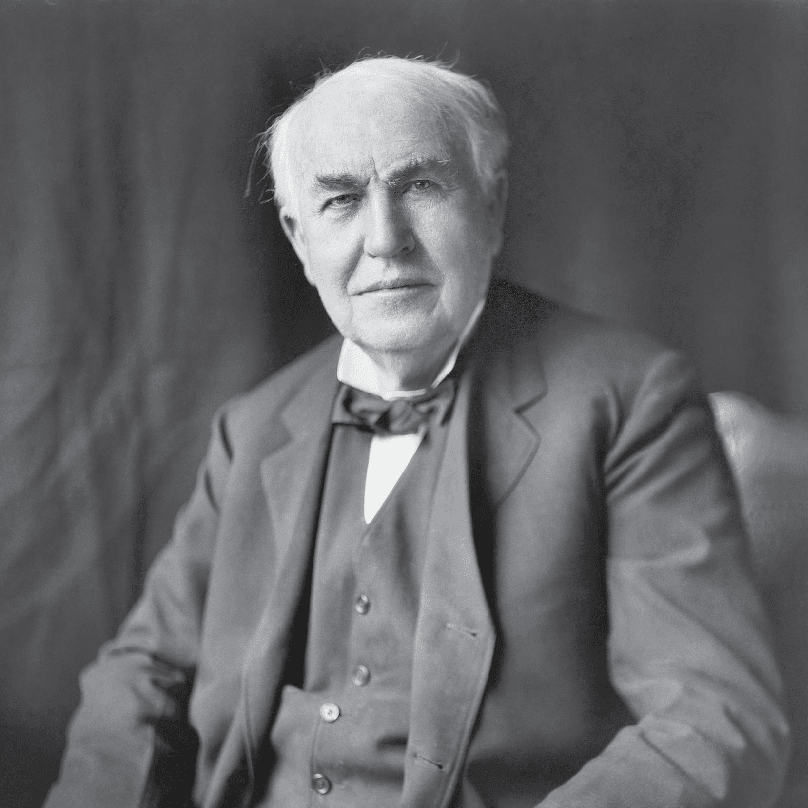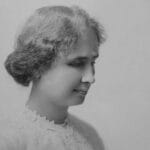Ferdinand Berthier wasn’t just a key figure in deaf history; he was a revolutionary. He lived in Paris and fought passionately for the rights of deaf people in the 1800s. Berthier helped change how the world saw them, advocating for their inclusion and recognition in a time when deafness was often misunderstood.
Facts About Ferdinand Berthier
Imagine a world where being deaf meant you couldn’t learn or contribute to society. That was the reality back then. But Berthier dared to dream of something different.
He passionately believed that deaf people, using sign language, could learn and thrive just like anyone else. This idea, which seems obvious now, was considered radical in his time. He challenged the prevailing thought that deaf people were somehow less capable and fought tirelessly to prove that with the right support, they could achieve anything.
His impact wasn’t just about changing laws; it was about changing hearts and minds. He helped people see the person, not the disability. His unwavering belief in self-determination – the right of deaf people to make their own choices and control their own lives – became a cornerstone of the deaf rights movement. It’s a principle that continues to guide and inspire deaf activists today.
Berthier didn’t stop at just talking the talk. He founded the Société Centrale des Sourds-Muets in France, an organization with a mission to empower deaf individuals and give them a voice in a world that often ignored them. This wasn’t just a social club; it was a lifeline, a place where deaf people could connect, share ideas, and fight for change. You can draw a direct line from the work of this organization to the countless deaf organizations around the world today.
Ferdinand Berthier’s legacy is immense. He didn’t just fight for the rights of deaf people; he empowered them. He helped to change the narrative and, in doing so, he didn’t just impact the deaf community, he helped inspire countless others fighting for marginalized groups around the world.
What Did Ferdinand Berthier Do?
Ferdinand Berthier, born deaf in 1803, was a force of nature who completely changed how people saw the deaf community in France. Think of him as a tireless advocate, a sharp intellectual, and a political powerhouse, all rolled into one. He was deeply passionate about improving the lives of deaf individuals in the 19th century, and his work left a lasting impact on deaf education and the fight for deaf rights.
His own experiences likely fueled his passion for advocacy. Attending the National Institute for the Deaf in Paris, he understood firsthand the challenges faced by the deaf community. He realized someone needed to step up and fight for the rights of the deaf, and he was determined to be that person.
In 1837, Berthier established the Société Centrale des Sourds-Muets. This organization was created with a clear mission: to empower deaf individuals and give them a voice in a world that often ignored them.
Berthier dedicated his life to campaigning for better access to education for the deaf, arguing that they deserved the same opportunities as everyone else. He also fought tirelessly for sign language to be recognized as a legitimate and valuable form of communication. Furthermore, he dove headfirst into politics, advocating for the right of deaf citizens to participate in the political process, something that was practically unheard of at the time.
His efforts were not in vain. Because of his persistent advocacy, deaf people in France gained the right to participate in politics. In recognition of his dedication and the impact he had on society, Berthier was awarded the prestigious Chevalier de la Légion d’honneur in 1849.
Berthier wasn’t just a political activist; he was a scholar and prolific writer, too. He dove deep into researching and writing about deaf history and culture, publishing numerous works that shed light on the unique experiences and valuable contributions of deaf individuals. His writing wasn’t just informative; it helped to change people’s perceptions and foster a greater understanding and acceptance of the deaf community.
Think of it this way:
- He created a safe space: By establishing the Société Centrale des Sourds-Muets, Berthier created a dedicated organization focused solely on supporting the deaf community.
- He broke down educational barriers: He was a champion for better access to education for deaf individuals, pushing for the recognition and use of sign language as a valid and important form of communication.
- He empowered deaf voices: He paved the way for deaf individuals to have a say in how their lives were governed by advocating for their right to participate in the political arena.
- He gave the deaf community a written legacy: His extensive research and writing on deaf history and culture helped to raise awareness, change perceptions, and promote greater understanding and acceptance of the deaf community.
Why Did Berthier Come to the School and What Were His Goals There?
While there is limited documentation detailing every aspect of Berthier’s life, we can make some educated guesses about his motivations based on his actions and the impact he had. Ferdinand Berthier, a passionate advocate for the Deaf community, didn’t just stumble upon the school for the deaf by chance. He was driven by a deep desire to learn everything he could about teaching deaf students, probably seeing this as a crucial step in his journey to empower deaf individuals and help them claim their rightful place in society.
Berthier firmly believed that with the right education, deaf people could achieve anything their hearing peers could. It’s likely he understood that education was the key to unlocking opportunities for deaf individuals. By immersing himself in the school environment, he could observe firsthand the most effective teaching methods being used at the time.
However, Berthier’s aspirations went far beyond the classroom walls. He envisioned a world where deaf people were not only educated but also fully integrated into society. He wanted to challenge the prevailing prejudices and demonstrate the richness of deaf culture. His time at the school probably reinforced his belief in the power of sign language as a vital tool for communication and self-expression.
Some experts suggest that Berthier’s experiences at the school may have also fueled his advocacy work. By witnessing the challenges faced by deaf students, he likely felt even more motivated to fight for their rights and create a more inclusive world. While we can’t know for certain everything that went through Berthier’s mind, his actions speak volumes about his unwavering commitment to the Deaf community. His legacy continues to inspire educators and advocates who strive to create a world where deaf individuals are empowered to reach their full potential.
Who Were the Important Individuals Who Influenced Berthier During His Time at the School?
Ferdinand Berthier’s years at the Institut National de Jeunes Sourds de Paris weren’t just about lessons; they were about shaping his entire outlook. He crossed paths with some very influential people who may have left a significant mark on his journey as both a learner and an advocate for the deaf community.
Let’s start with Roch-Ambroise Auguste Bébian. While Bébian himself wasn’t deaf, he was a teacher who really “got” sign language. He truly believed in its power to help deaf people communicate. It’s very possible that Bébian’s unwavering support for French Sign Language (FSL) rubbed off on Berthier, as it became a cornerstone of his own work later on.
Then there’s Jean Massieu, a deaf man who had been a student at the very same school. Think about the impact of having a mentor who’d walked in your shoes! Because Massieu had experienced firsthand what it was like to be deaf in a hearing world, he could have provided Berthier with a deep understanding of the challenges deaf students faced. This probably fueled Berthier’s passion to create better educational opportunities for others like him.
And we can’t forget Laurent Clerc, another deaf student who became a teacher. Clerc was all about finding ways to make learning accessible, especially when it came to math. It’s safe to say that Clerc’s innovative teaching methods probably gave Berthier some valuable ideas for making education more inclusive.
It’s important to remember that our understanding of history is always evolving. Research is ongoing, and new discoveries may shed more light on the specific ways these individuals interacted with and influenced Berthier. But one thing’s for sure: Berthier’s time at the school wasn’t just about him—it was about the connections he made and the shared commitment to empowering the deaf community.
Why Was the Year 1834 Important to the Parisian Deaf Community?
The year 1834 wasn’t just another year for the deaf community in Paris – it was a turning point. It marked the first “Silent Banquet,” organized by Ferdinand Berthier and Alfred Bocquin, two deaf men who wanted to honor the Abbé de l’Epée, a man who had dedicated his life to championing the rights of deaf individuals. This banquet, held on November 30th, wasn’t a one-time thing either. It became an annual tradition, a way for the deaf community in Paris to come together, celebrate their shared identity, and remember those who fought for their recognition.
But 1834’s significance goes beyond just a single event. Berthier, energized by the success of the banquet, didn’t stop there. He saw a need for an organization that would truly give a voice to the deaf community. In 1838, he founded the Société Centrale des Sourds-muets. This wasn’t just some social club; it was the first organization of its kind dedicated to protecting the rights and interests of deaf individuals in Paris.
Think about it – for perhaps the first time, the deaf community had someone like Berthier fighting their corner, advocating for their needs, and demanding that their voices be heard. He wasn’t just a figurehead; he was a powerful advocate for sign language. He believed that forcing deaf individuals to learn through oralism wasn’t just ineffective; it was unjust. Berthier understood that sign language wasn’t just a means of communication; it was a cornerstone of deaf culture and identity. His efforts, ignited in that pivotal year of 1834, continue to influence how we approach deaf education even today.
While 1834 wasn’t the beginning of the story for the Parisian deaf community, it marked a turning point. It showed the power of collective action, the importance of dedicated advocates like Berthier, and the enduring legacy of fighting for inclusion and recognition.
What Did Ferdinand Accomplish?
Ferdinand Berthier was a true pioneer! He truly believed in the power of sign language and dedicated his life to making sure deaf people had the same opportunities as everyone else. During his lifetime, deaf children were often misunderstood or even thought of as incapable of learning. Berthier stepped up to change that.
One of his biggest accomplishments was pioneering new ways to teach deaf children. He knew that sign language wasn’t just some hand gestures—it was a rich and complex language all on its own. So, he championed its use in schools, alongside lip-reading, to help deaf children thrive. His efforts led to the creation of the very first school for the deaf in France, which quickly became a shining example for educators all over the world.
But Berthier didn’t stop there. He strongly believed that for things to truly change, people needed to understand and accept sign language as a valid and important form of communication. To accomplish this, he became a voice for the deaf community, writing book after book, article after article, passionately explaining the beauty and complexity of sign language. He didn’t just want it recognized; he wanted it celebrated!
His dedication didn’t end at the classroom door either. Berthier knew that for deaf people to be truly equal, sign language needed to be accepted everywhere, not just in schools. He fought tirelessly to make sure it was recognized in courts, government offices, and throughout society. He even started the very first self-help organization for deaf people in France called the Société Centrale des Sourds-muets. It was a place where they could come together, share their experiences, and support one another.
Ferdinand Berthier’s unwavering belief in the power of sign language and his tireless work paved the way for the deaf education system we know today. His legacy continues to inspire generations of educators and advocates, reminding us that everyone deserves a voice and a chance to shine. While we know a lot about his achievements, there’s still so much to uncover about his life and the intricacies of his work, making him a truly fascinating figure in history.
What War Did Ferdinand Fight In?
Ferdinand Berthier’s life was a battle fought not on traditional battlefields, but in the social and political arenas. While there’s no evidence to suggest he participated in any wars, his life was a testament to fighting for what you believe in. His “weapons” were his unwavering dedication, powerful advocacy, and strong belief in the power of sign language.
He fought tirelessly to establish the first deaf school in France, a monumental achievement that opened doors to education previously slammed shut for many. He passionately argued for the recognition of sign language as a valid and essential form of communication, not just some “inferior” substitute for spoken language.
He also founded the Société Centrale des Sourds-muets, which became a powerful platform for advancing the rights of deaf individuals. This wasn’t just paperwork and meetings for Ferdinand; it was about changing hearts and minds. It was about ensuring that the voices of the deaf community were heard loud and clear.
Ferdinand’s legacy is etched in the progress made for deaf individuals: the schools built, the rights won, and the acceptance fostered. He may not have fought in a war with guns and cannons, but his life was a testament to the power of fighting for what you believe in, for a better future, and for the rights of those who need a voice.
To learn more about influential figures and their impact on social change, explore our articles on facts about takashi murakami and fun facts about coretta scott king.
- Unlock Water’s Symbolism: A Cross-Cultural Exploration - April 20, 2025
- Identify Black and White Snakes: Venomous or Harmless? - April 20, 2025
- Unlocking Potential: Origins High School’s NYC Story - April 20, 2025
















2 thoughts on “Facts About Ferdinand Berthier, a Champion for the Deaf”
Comments are closed.